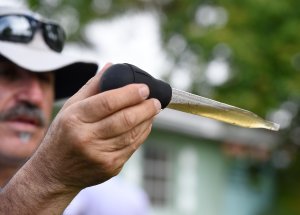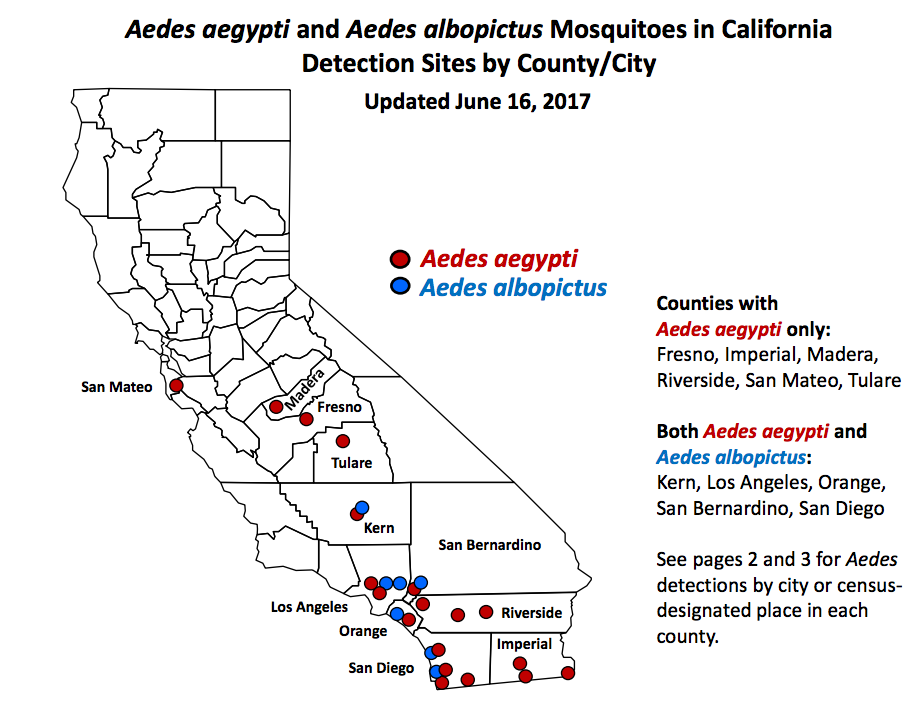The type of mosquitoes that can carry Zika and other dangerous viruses has been found in Long Beach for the first time, city health officials said Monday.

The Aedes aegypti mosquitoes, which are not native to California, were discovered in the northern part of the city, the Long Beach Department of Health and Human Services announced.
Two vector control districts are working together to deploy traps and to determine the extent of the infestation in Long Beach.
“Our goal is to control this mosquito population,” said City Health Officer Dr. Anissa Davis. “We are doing everything to ensure this mosquito does not become established or thrive in our communities.”
Since 2011, the species has been identified elsewhere in the state, including in Los Angeles County. Many cities have reported Aedes aegypti aka yellow fever mosquitoes and Aedes albopictus aka Asian tiger mosquitoes, which can also transmit Zika.
Zika can be transmitted to humans by the bite of an infected mosquito, through sex, and from an infected pregnant mother to her fetus.
No one in California has contracted or transmitted the disease locally, but some 561 patients in the state have been diagnosed with travel-related Zika since 2015, according to state data. If an Aedes mosquito were to bite a human who contracted Zika while traveling, the mosquito could transmit the virus to another human.
This year, as of June 16, only 57 California patients have had travel-related Zika infections.
There is no vaccine against Zika and no treatment.
Most people do not develop serious symptoms but patients can experience fever, rash, headache, joint and muscle pain and red eyes. Mothers who get the virus while pregnant can have children with birth defects including microcephaly, in which babies’ heads and brains are much smaller than they should be.
In November 2016, the World Health Organization said the Zika virus outbreak was no longer a public health emergency of international concern, but emphasized that the virus was “here to stay.”
California residents are advised to take precautions to reduce the chances of being bitten or allowing mosquitoes to breed on their property. More information is on the state health department’s website.
Long Beach residents who notice an unusually large number of mosquitoes or mosquitoes that bite during the day, are asked to call the city’s Zika hotline at 562-570-7907.















